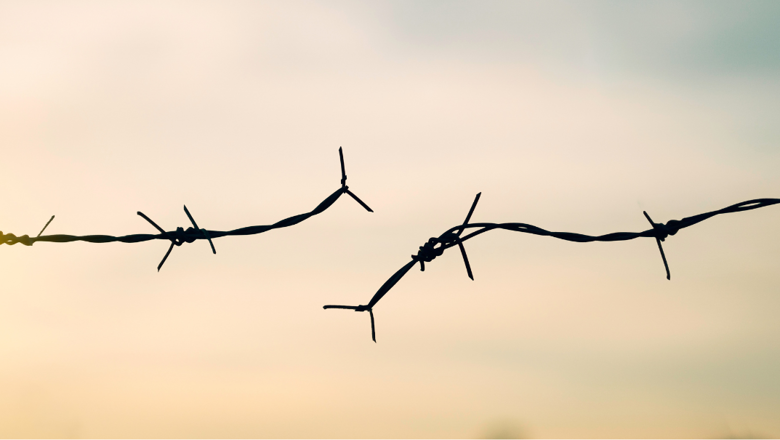I am delighted with the significant contribution Arts and Humanities will make to the Research Centre on Slavery in War. It demonstrates again our world-leading interdisciplinary strength and the vital role of the arts and humanities in tackling societal challenges. Well done to all our colleagues who have contributed to this achievement.
Professor Simon Tanner, Executive Dean, Faculty of Arts & Humanities (Interim), Professor of Digital Cultural Heritage
14 April 2025
Digital research led by Kings to forecast the emergence of slavery in war zones
Academics from the Department of Digital Humanities and King’s Digital Lab will spearhead digital research in the new Leverhulme Centre for Research on Slavery in War.

The new £10 million Leverhulme Centre for Research on Slavery in War established by King’s College London in partnership with the University of Nottingham will look at how slavery has manifested in war throughout history, and how it can be forecasted and tackled in the future.
Led by Dr Maeve Ryan from the Department of War Studies, the Centre will galvanise collaborations between social sciences and the humanities with informatics and data science, especially for AI and Natural Language Processing, and will use King’s Digital Lab’s digital research software engineering expertise.
Professor Simon Tanner will Co-Direct the research strand Understanding Slavery which will bring together historical and archival research methods with data analytics and machine learning to build a ‘spine’ of research materials and data from 1750 to the present.
Innovative Forecasting Methodologies
Dr Andrea Ballatore, Senior Lecturer in Cultural Data Science in the Department of Digital Humanities, will design innovative forecasting methodologies that draw on satellite Earth Observation (EO) data, survivor narratives, and a range of qualitative and quantitative datasets to anticipate where and how slavery in conflict may emerge or persist.
As a specialist in geographic data science, Dr Andrea Ballatore will contribute to the harmonisation of data from more than 50 historical and contemporary sources—including conflict databases, journalistic reporting, and first-person testimonies—into a cohesive framework that enables interdisciplinary analysis and predictive spatio-temporal modelling.
I am incredibly excited to be part of this groundbreaking initiative to tackle one of the most enduring and troubling issues in global affairs: slavery. As a data scientist and digital humanist, I’m proud to contribute to work that not only deepens our understanding of slavery but also supports the development of tools to forecast its emergence in future conflicts and inform evidence-based policy interventions.
Dr Andrea Ballatore, Senior Lecturer in Cultural Data Science
Support from King’s Digital Lab
The Centre is supported by King’s Digital Lab – from underpinning database infrastructures to the creation of analytical toolsets, the incorporation of AI to enhance workflows, and the effective communication of research findings. KDL experts will be developing user-friendly analysis tools and interactive visualisations to support both researchers and stakeholders in exploring the data.
The pace of change in research methods using AI requires an adaptable project management approach to ensure that our methodological relevance is maintained throughout. AI brings opportunities to scale up and enrich traditional qualitative methods, produce new insights, and highlight potentially rich seams of research value. King’s Digital Lab is proud to be part of this timely initiative, and we are looking forward to embracing the unique challenges presented by the research.
Neil Jakeman, Senior Research Software Analyst, King’s Digital Lab
The Centre for Research on Slavery in War will operate as a dual-site institution led by King’s College London’s School of Security Studies and the University of Nottingham’s Rights Lab. Its funding was announced on 9 April by the Leverhulme Trust Board as one of three winners of its 2025 Leverhulme Research Centre competition. The Centre will be the first overarching and integrative attempt to understand the links between slavery and war as they have evolved historically and up to the present.




